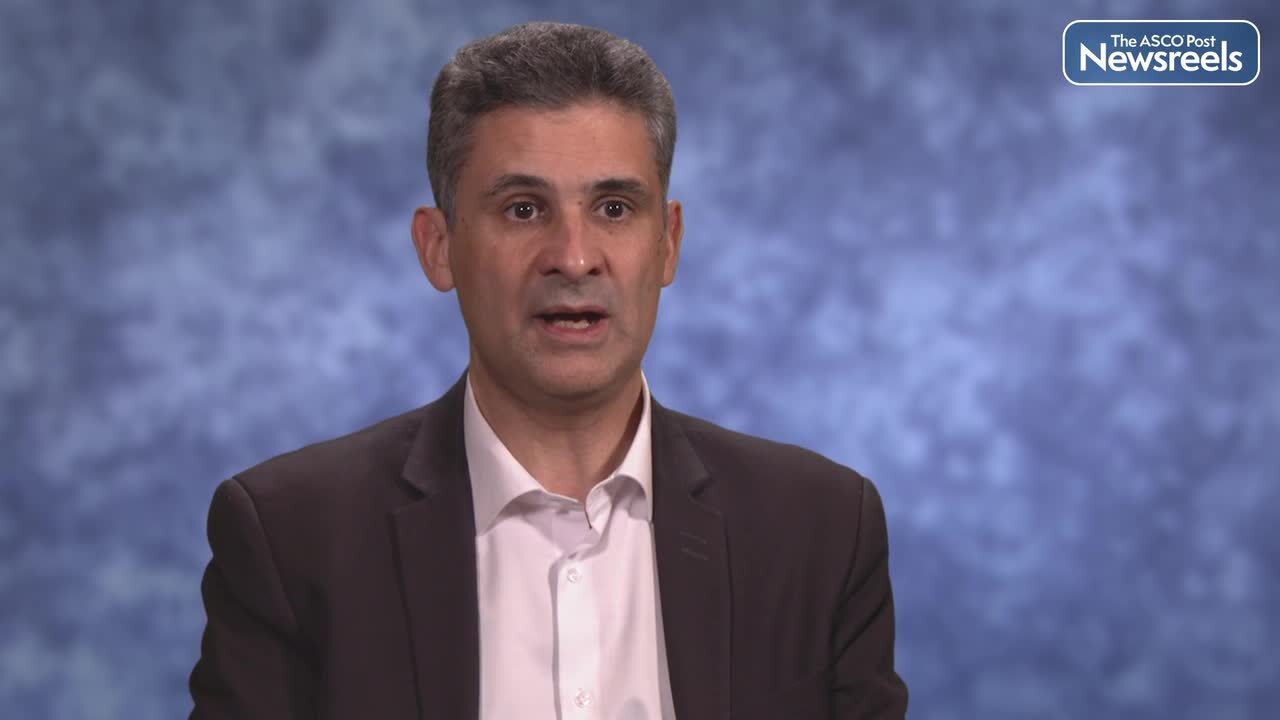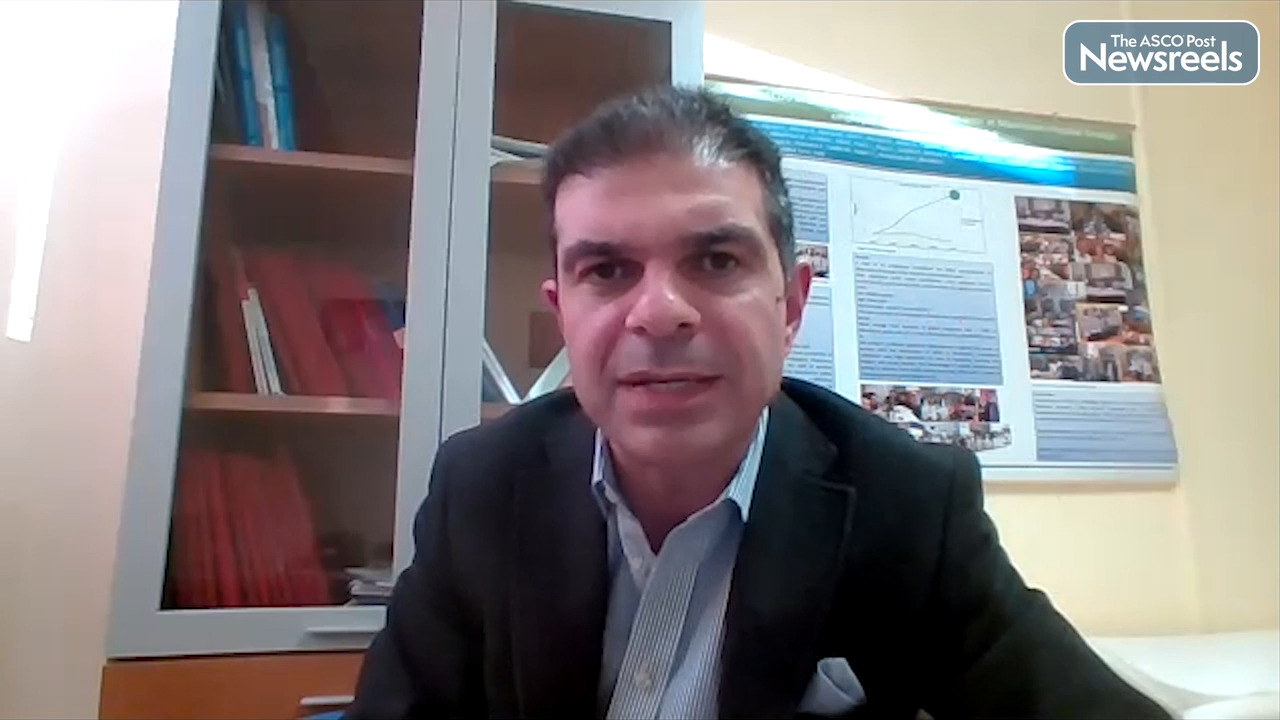Toni K. Choueiri, MD, on Renal Cell Carcinoma: Follow-up Data on Pembrolizumab
2022 ASCO Genitourinary Cancers Symposium
Toni K. Choueiri, MD, of Dana-Farber Cancer Institute, discusses a 30-month follow-up of results from the KEYNOTE-564 trial, which further support the use of adjuvant pembrolizumab when treating patients with renal cell carcinoma at intermediate-high or high risk of recurrence, or with an M1 NED (no evidence of disease) status after nephrectomy. The data show a disease-free survival benefit vs placebo (Abstract 290).
The ASCO Post Staff
Hielke-Martijn de Vries, MD, of the Netherlands Cancer Institute, discusses phase II findings on the use of atezolizumab with or without radiotherapy for patients with advanced squamous cell carcinoma of the penis. The study was designed to address the poor prognosis for this disease by exploring whether a protracted schedule of radiotherapy for locoregional disease, in combination with immunotherapy, could improve outcomes (Abstract 3).
The ASCO Post Staff
Jonathan E. Rosenberg, MD, of Memorial Sloan Kettering Cancer Center, discusses phase II findings from the BAYOU trial, which studied durvalumab in combination with olaparib for first-line treatment of platinum-ineligible patients with unresectable, stage IV urothelial carcinoma. Because secondary analyses indicated a potential progression-free survival benefit with this combination, there may be a role for PARP inhibitors in the treatment of advanced disease with homologous recombination repair mutation (Abstract 437).
The ASCO Post Staff
Karim Fizazi, PhD, MD, of Gustave Roussy and University of Paris-Saclay, discusses results from a first-in-human phase I/II trial, which showed that administering ODM-208—an oral, nonsteroidal inhibitor of the enzyme CYP11A1—to men with metastatic castration-resistant prostate cancer who were pretreated with abiraterone/enzalutamide and taxanes was effective in blocking the production of steroid hormones. It also showed antitumor activity, especially in men with AR mutation–positive cancers.
The ASCO Post Staff
Massimo Di Maio, MD, of the University of Turin, discusses the Meet-URO12 study, which showed that maintenance niraparib plus best supportive care (BSC) did not prolong progression-free survival, compared with BSC alone, among patients with urothelial cancer that did not progress after first-line platinum-based chemotherapy.
The ASCO Post Staff
Sumanta K. Pal, MD, of City of Hope National Medical Center, discusses some key research developments in kidney cancer, including data on nivolumab and ipilimumab with or without CBM588 in metastatic renal cell carcinoma; intestinal microbiome associated with the development of grade 3 or 4 adverse events in patients with metastatic disease who have been treated with nivolumab plus ipilimumab and probiotic support; the link between TERT promoter mutations and clinical outcome with immune checkpoint inhibitor therapy for advanced urothelial cancer; mutations in the androgen receptor gene in patients with prostate cancer receiving novel androgen deprivation treatments; and findings on waning antibody titers in patients who have received COVID-19 vaccinations (Roundup of Abstracts 371, 561, 374, Posters 38 and 48).





